Done Deal: Suzuki And Volkswagen Hitched

Who would have thought that they are moving that fast: VW will buy a 20 percent stake in Japan’s Suzuki for $2.5 billion. It’s announced and it is official, including a photo-op with a beaming Winterkorn next to a grinning Osamu Suzuki. Rumors of that, well, tie-up had been around for a while and had recently intensified, but the speed is nonetheless surprising. Except for those who know Piech. At the September IAA auto show, Piech had said that 12 brands are better than 10. Everybody who knew Piech knew that he was referring to MAN/Scania trucks on one end of the spectrum, and Suzuki small cars and even motor bikes at the other.
Piech’s protégé and VW CEO Martin Winterkorn, was hopeful the Suzuki alliance would help catapult the Wolfsburg-based carmaker past industry leader Toyota Motor Corp ahead of plan.”If that succeeds faster (than 2018), we’re happy,” a grinning Winterkorn told reporters the Tokyo press conference, Reuters reports
Osamu Suzuki has a different view: “I don’t want you to misunderstand: Suzuki is not becoming a 12th brand for Volkswagen, I don’t want other folks telling me how to do things.” Time will tell. And there is always the “biological solution” as the saying goes in Wolfsburg: Suzuki-San is 80. Nobody in Germany really believes that Volkswagen is content with owning only a minority share. They want to be able to count Suzuki’s sales and n umbers as theirs. The Nikkei [sub] already muses that the “ambitious move may create a global alliance rivaling Toyota Motor Corp. with a dominating presence particularly in the emerging markets of China and India.”
Whatever it may become, at the moment it’s not a takeover, it’s an alliance: Suzuki will invest up to half of the proceeds in a cross-shareholding and pay $1.13b for a rather symbolic (and tax efficient) 2.5 percent stake in VW.
As we’ve said before, the Suzuki-deal works for both. Suzuki has what Volkswagen needs, and Suzuki needs what Volkswagen has.
Suzuki pretty much owns the Indian market at a slightly deteriorating market share. Suzuki.Maruti’s share of that market has fallen over the last year from 45 percent to about 40 percent (with passenger car share down from 55 percent to 48 percent). VW is just starting out in India, but can complement Suzuki at the slightly larger end,
Volkswagen has a dominant role in other growth markets such as China and Brazil. Suzuki has an output of 2.36 million units a year, added to VW’s sales, Toyota would be toast, and Winterkorn would be happy. He’s not the only one who likes the deal.
Suzuki’s shares were up 3.5 percent in Tokyo market, Volkswagen rose as much as 2.9 percent in Germany, the leading gainer among German blue chips.
But it’s not all roses. The WSJ is already pointing out the possibility of a great Teutonic-Nipponese family feud: “They are fiercely independent family-led companies, which may make any benefits more difficult to deliver.”

Bertel Schmitt comes back to journalism after taking a 35 year break in advertising and marketing. He ran and owned advertising agencies in Duesseldorf, Germany, and New York City. Volkswagen A.G. was Bertel's most important corporate account. Schmitt's advertising and marketing career touched many corners of the industry with a special focus on automotive products and services. Since 2004, he lives in Japan and China with his wife <a href="http://www.tomokoandbertel.com"> Tomoko </a>. Bertel Schmitt is a founding board member of the <a href="http://www.offshoresuperseries.com"> Offshore Super Series </a>, an American offshore powerboat racing organization. He is co-owner of the racing team Typhoon.
More by Bertel Schmitt
Latest Car Reviews
Read moreLatest Product Reviews
Read moreRecent Comments
- SCE to AUX Over the last 15 years and half a dozen vehicles, my Hyundais and Kias have been pretty cheap to maintain and insure - gas, hybrid, and electric.I hate buying tires - whose cost goes by diameter - and I'm dreading the purchase of new 19s for the Santa Fe.I also have an 08 Rabbit in my fleet, which is not cheap to fix.But I do my own wrenching, so that's the biggest factor.
- MaintenanceCosts '19 Chevy Bolt: Next to nothing. A 12v battery and a couple cabin air filters. $400 over five years.'16 Highlander Hybrid, bought in 2019: A new set of brakes at all four corners, a new PCV valve, several oil changes, and two new 12v batteries (to be fair, the second one wasn't the car's fault - I had the misfortune of leaving it for a month with both third-row interior lights stealthily turned on by my kid). Total costs around $2500 over five years. Coming due: tires.'11 BMW 335i, bought in late 2022: A new HID low beam bulb (requiring removal of the front fascia, which I paid to have done), a new set of spark plugs, replacements for several flaking soft-touch parts, and two oil changes. Total costs around $1600 over a year and a half. Coming due: front main seal (slow leak).'95 Acura Legend, bought in 2015: Almost complete steering and suspension overhauls, timing belt and water pump, new rear brakes, new wheels and tires, new radiator, new coolant hoses throughout, new valve cover gaskets, new PS hoses, new EGR valve assembly, new power antenna, professional paint correction, and quite a few oil changes. Total costs around $12k over nine years. Coming due: timing belt (again), front diff seal.
- SCE to AUX Given this choice - I'd take the Honda Civic Sport Hatchback (CVT). I 'built' mine for $28777.To my eye, the Civic beats the Corolla on looks these days.But for the same money, I can get an Elantra N-Line with 7-speed DCT, 201 HP, and good fuel economy, so I'd rather go for that.
- Dr.Nick The cars seem really expensive with tight back seats and Cadillac was on the list of the highest price gouging dealers coming out of COVID. I don’t understand the combination, shouldn’t they be offering deals if they are not selling?
- Dr.Nick Too bad the Turbo XT isn’t coming. The Outback Turbo is not bad at all, would be a lot of fun in the shorter Forester.
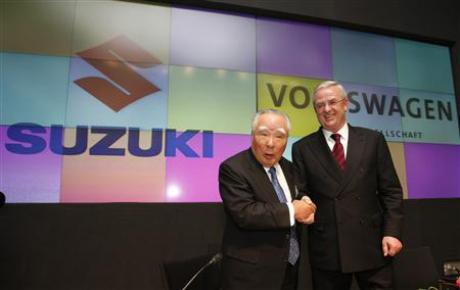
















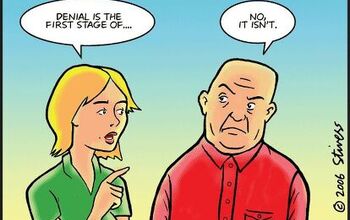


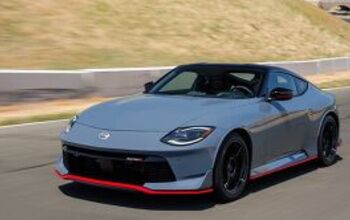

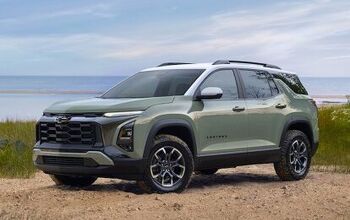





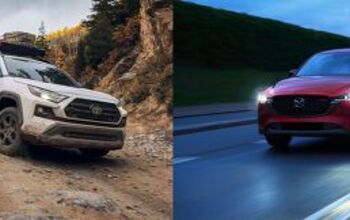


Comments
Join the conversation
I think this is an interesting deal from a North American point of view (although I agree that this was probably about Asia). Suzuki does not have an established product line here, so switching the Kizashi to the mid sized sedan architecture and introducing VW parts to the sx4 can be done without being too obvious about it or hurting credibility. More NA volume for VW and far better drivetrain tech for Suzuki. I would expect Suzuki to stay downmarket of VW, allowing the germans to sell $15k cars without having to resort to decontenting. I, for one, would love a VW mechanical package paired with a cheaper, more reliable and simpler interior. I'd go so far as to declare "no-downside" from a NA consumer's point of view, at least so long as Suzuki dosen't just start selling last gen VW's.
I, for one, would not like any VW technology in any Suzuki built for the U.S. market. VW's look great on paper and are wonderful to drive when they're brand new. I want to like them. I really do. But a few thousand miles down the road and they become nightmares - largely due to design defects. Now, I'm sure a dozen people will post about their ownership of trouble-free VWs. But they are the exceptions that prove the rule. The numbers don't lie. One's chances of having major problems with a VW are very high compared with other brands.